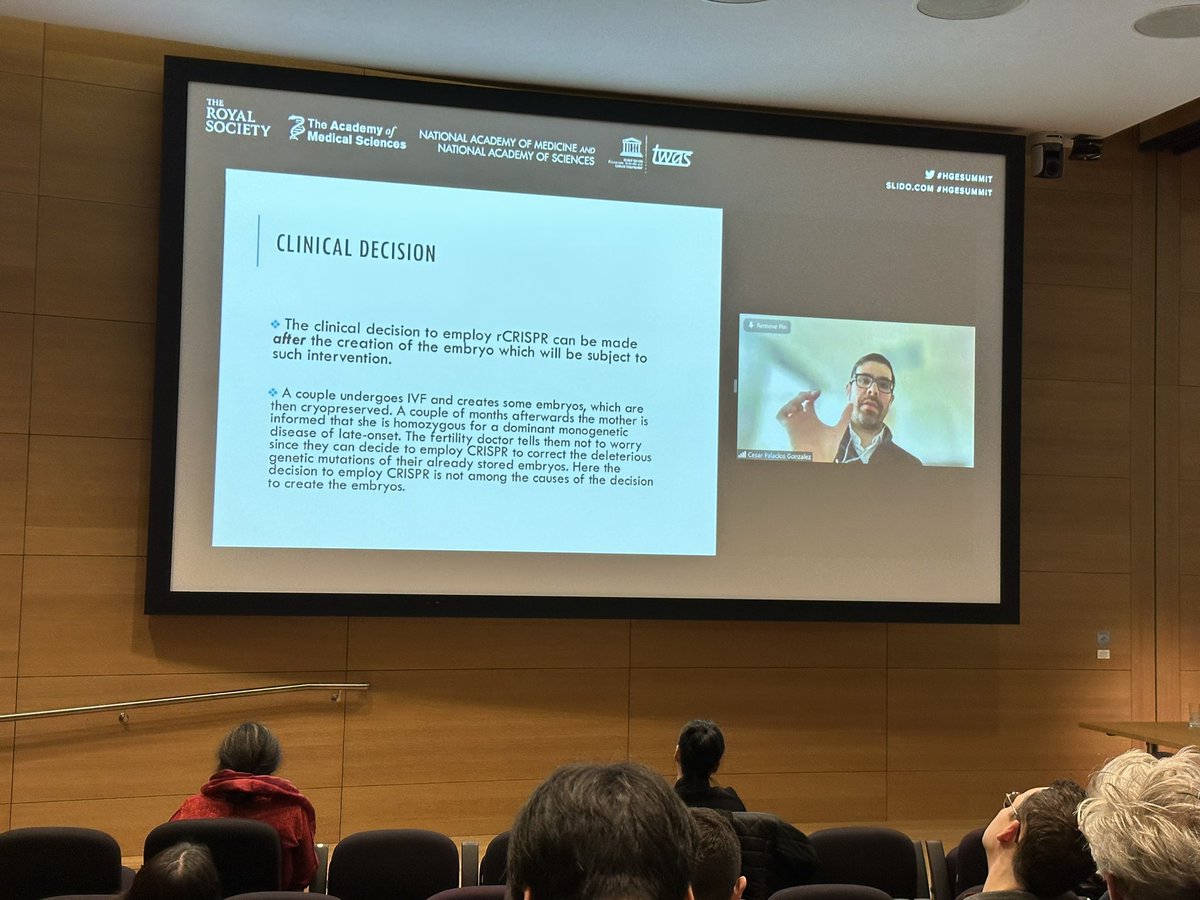
Session now on "Are there compelling reasons for heritable human genome editing?" at #HGESummit. Ephrat Levy-Lahad giving an overview of global regulation first:
„There's not a single country where heritable genome editing is currently permitted.“
„There's not a single country where heritable genome editing is currently permitted.“

This probably does not reflect universal opposition to the technology, but rather current limitations, she says, „in particular, the realisation that there is still a major issue of safety and clinical application would not take place until these issues are resolved“
But that means we have an opportunity now to discuss what happens if safety were achieved, she says. „I realise this is a big if, but we need to start thinking about it.“ #HGESummit
Levy-Lahad argues that in social contexts where having a biological family is a big imperative, infertility „could become a compelling reason for heritable genome editing“ IF the technology is safe (and other guiding principles met). #HGESummit
Interesting ethics talks by @CPalaciosG and Tina Rulli. Rulli‘s basic argument is that reproductive genome modification does not cure a disease in someone that already exists. Instead without it a child would likely not be born. 

„It's just part of a reproductive decision to create a baby free of some specific disease that's different than curing a baby who would otherwise be sick from a disease“, says Rulli. #HGESummit
Given this and that most parents have other options available (like pre-implantation diagnostics), „the social value of reproductive genome modification simply falls far below a threshold of social value in a world with many unmet medical needs“, says Rulli. #HGESummit
A large part of Rulli‘s argument is about where we put our energy and resources as a society: „We need to look at addressing needs that affect a large number of people and/or are life threatening because we have a lot of those which are underfunded as well.“
Before Rulli, @CPalaciosG took on some of her argument pointing out that in some cases the decision to use crispr might only be made after the creation of the embryo. So in some cases you can call heritable genome editing „a therapy“ he contends 





Fascinating to hear these different takes on hereditary genome editing. I wish more scientific conferences created a space for debates like this. I do think everyone profits from hearing people who have thought deeply about these issues but from vastly different perspective.
Curious detail in Kyle Orwig‘s talk on editing spermatogonial stem cells: Apparently there's an abundance of genes that are important for sperm formation located on the X chromosome. Curious what the evolutionary story might be behind this…
• • •
Missing some Tweet in this thread? You can try to
force a refresh





